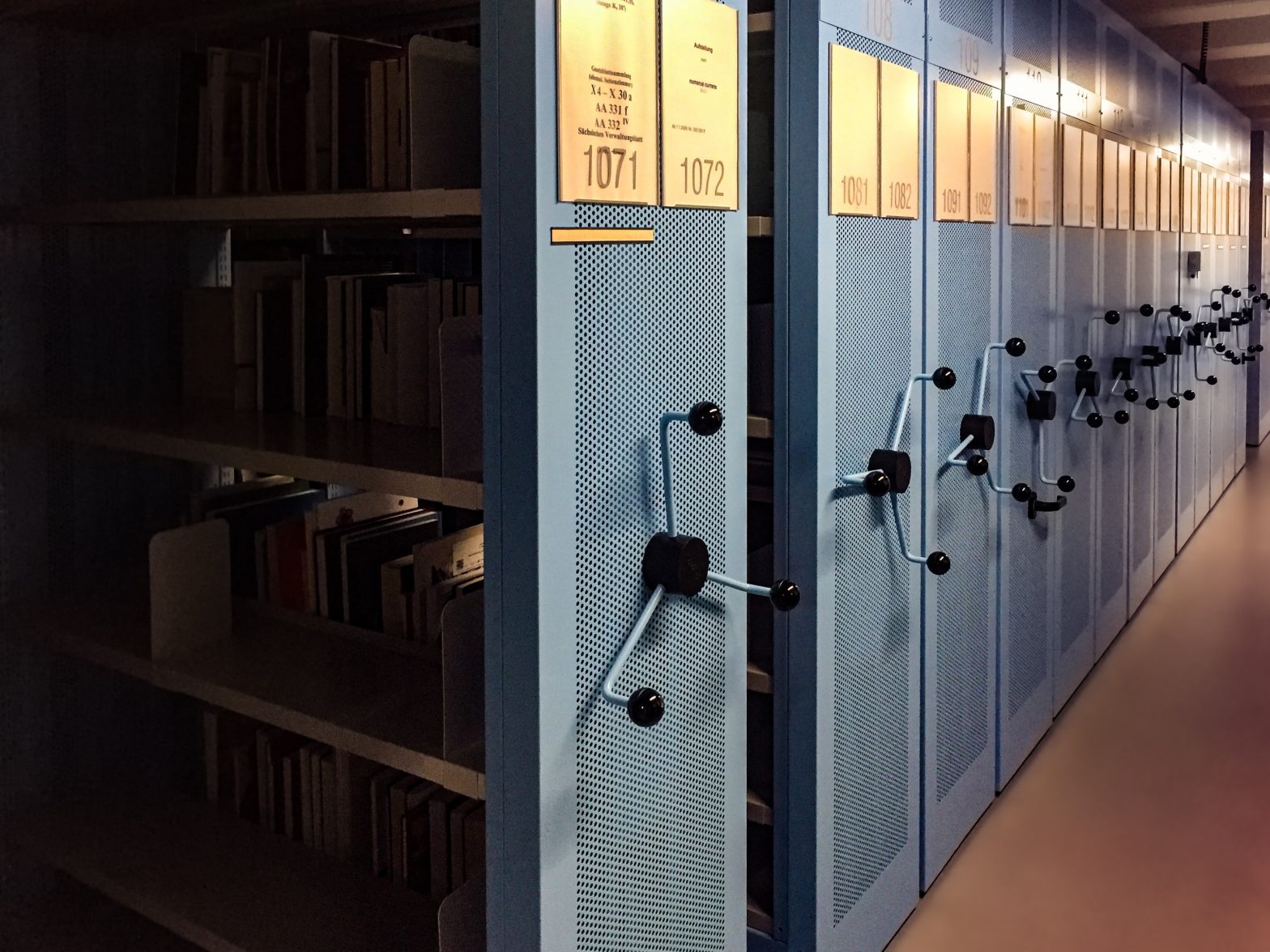“Technically, we’re not an archive,” Nancy Sullivan, the archivist for the Historical Society of Montgomery County, told me. An archive stores records of the institution it inhabits—administration documents of a university, for example, or a corporation’s internal memos. A manuscript repository, however, collects the records of other organizations. The society, she explained, is a manuscript repository since its collection consists mostly of donations.
“It’s a distinction only archivists care about.”
But the difference between archives and repositories reflects a central challenge faced by local historical societies. Most local historical societies are repositories, not government archives, and no one is obligated to give them records. Thus, the records we have today are the results of coincidences and the hard work of amateur local historians.
Some archiving, though, is government-mandated. The federal government funds the National Archives and Records Administration, which stores permanent records of the country’s historically relevant documents, including military records, naturalization records, and executive orders. Most states also have offices of archiving and laws requiring the retention of certain government records. In many cases, even the local levels of government—like counties and townships—have archiving requirements, though the quality of those archives varies. Government archives are indispensable to historians, genealogists, and anyone looking to learn about the past, but they do not fill the role of local historical societies.
Local historical societies often contain government records, though local archivists are often wary of double-collecting when a state agency already has such records, as they often already battle space and resource constraints. More importantly, historical societies contain records that can’t be found in government archives. They have journals, photos, letters, newspapers, and other records of the past that reveal stories invisible in government records.
The collection of those materials, and the fact that we have so many to examine today, is miraculous. Even though laws didn’t mandate such collection, local archivists and historians of the past ensured their successors a chance to study newspaper collections, maps, and artifacts that sometimes date to the early days of our country. They were—and still are—often volunteers, devoting their time and hard work for the benefit of future generations. We are lucky that, in towns across America, people interested in history formed groups to do the important work of preserving it.
But it wasn’t just the work of dedicated volunteers that contributed to the records we have today. Historical societies are often repositories filled mostly through the donations of community members. Many collections only exist because people decided to donate family artifacts or stumbled across something interesting when cleaning out a deceased family member’s house. The idea that any such artifacts would end up in a repository seems even more unlikely when considering how few people even know about their local historical society. Undoubtedly, countless records have been thrown away rather than preserved by people who were unaware they held documents of significance or simply unsure what to do with them.
Some people, when reading the newspaper, clip the obituaries and mail them to the relevant historical societies. Sullivan, the archivist from Montgomery County, told The Politic, “Every now and then, I just get this envelope of obituaries from Florida for people who were born here.”
The process of finding missing issues of Yale’s student publications is similarly laced with luck and coincidences. Michael Lotstein, university archivist at Yale, said he sometimes finds missing issues in another university office that has a duplicate collection of a publication. Other times, the library serendipitously gets an email from an alumnus or family member with issues of a student publication.
And collection is just step one. The records that land at a local historical society then need to be archived and preserved, once again, without institutional support and often without professional archivists, since so many local historical societies are entirely volunteer-run.
The existence of any written history of a town is similarly reliant on happenstance. Much of a town’s collective history is often stored in the heads of a few (probably retired) individuals who have lived there their whole lives. Unless an ambitious amateur historian independently records their knowledge, the history of the town dies with them—which often happens.
The records we have today are not necessarily the product of meticulous, well-executed societal plans to remember our history. They are the product of a series of coincidences: a group of people simultaneously interested in history, that group’s competence in archiving, community members willing to donate their records. We get to examine our history because of the unnoticed and extraordinary efforts of incredibly generous people across time, people who worked to save history for us, whom they would never meet, but to whom they nonetheless felt an obligation. We owe a debt of gratitude to these volunteers for the histories they preserved, and, by taking an active role in preserving our current history, we can ensure the same good fortune for future generations.

